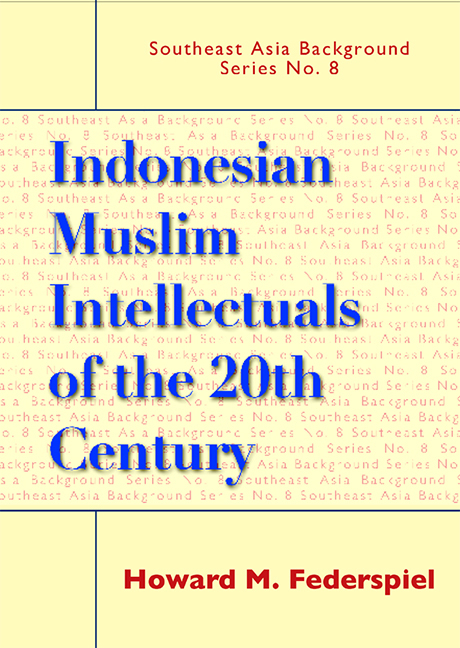3 - The Flowering of Islamic Associations
Published online by Cambridge University Press: 21 October 2015
Summary
A COLONIAL CULTURE AND ITS PROBLEMS
The second quarter of the century in the Indies was a period of general Dutch political repression towards indigenous nationalism and the creation of a colonial state given over to the benefit of an immigrant European population. Education became widespread, but it was education in which one's access was determined by status in the colonial system. For the Europeans and the Indonesian gentry an extensive and advanced school system was instituted, while the general population of the Indies was provided a short, very limited education designed to serve a traditional agricultural world. Politically, nationalism gained in popularity, in part due to the education of the Indonesian gentry, but by more popular forces as well. However, indigenous political organizations remained small and vulnerable, with their leaders targets of Dutch police services that viewed them as threats to public security. Many prominent nationalist leaders were sentenced to prison or sent into internal exile.
Late in the era efforts were undertaken to form coalitions of the many “nationalist” organizations that existed, which had some limited impact on the debates in the Volksraad (People's Assembly), the advisory council to the colonial administration. On the Muslim scene a second wave of Muslim modernism occurred and it generated the founding of several Muslim organizations, while the traditionalist reaction created still more organizations to counter the influence of the modernists. It was a period of repression for Indonesian nationalist movements, but a golden age for the foundation of Muslim organizations.
MUSLIM MODERNISM SPREADS TO JAVA
The second wave of modernist Muslim activity took place on Java and involved several different ethnic groups — primarily the Javanese, the Sundanese, and the Arabs, although one Tamil immigrant was important as well. None of these groups was part of the new “Indonesian” culture that produced the leadership for the Sarekat Islam or for several other groups outside this study, such as the literary elite.
- Type
- Chapter
- Information
- Indonesian Muslim Intellectuals of the Twentieth Century , pp. 27 - 44Publisher: ISEAS–Yusof Ishak InstitutePrint publication year: 2006

